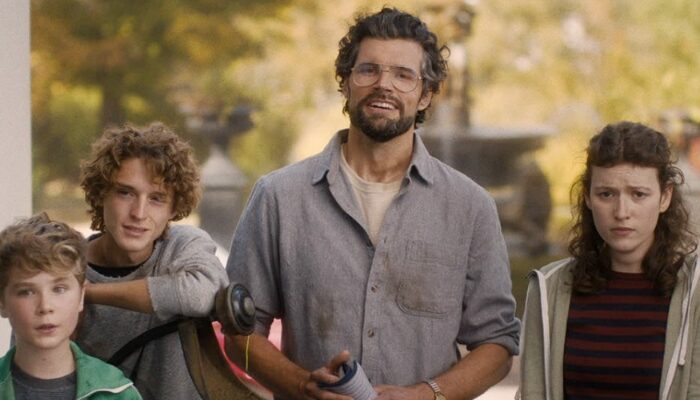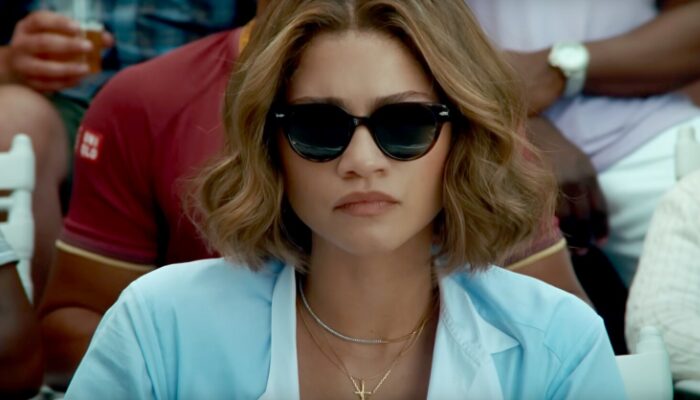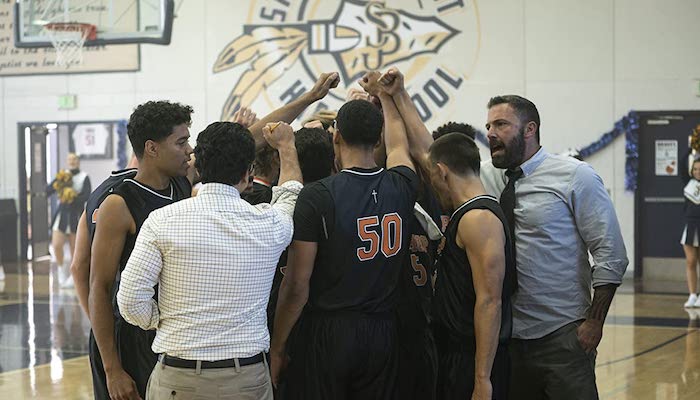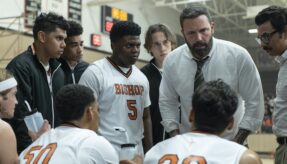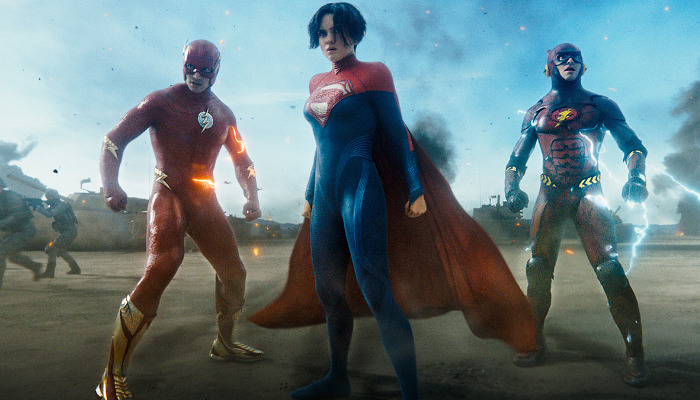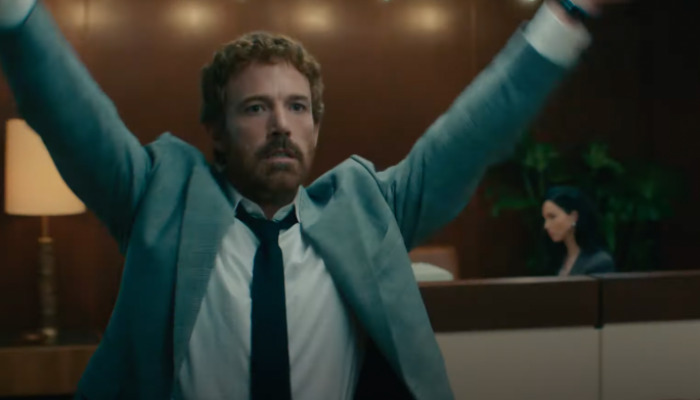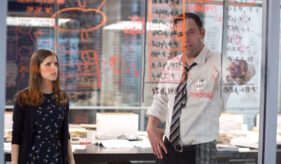Film Review: THE WAY BACK (2020): A By-The-Books Basketball Drama That’s An Easy Lay-Up
The Way Back Film Review
The Way Back (2020) Film Review, a movie directed by Gavin O’Connor, and starring Ben Affleck, Al Madrigal, Janina Gavankar, Michaela Watkins, Brandon Wilson, Will Ropp, Fernando Luis Vega, Melvin Gregg, Ben Irving, Jeremy Radin, John Aylward, Da’Vinchi, Matthew Glave, and Nico David.
Gavin O’Connor may not be a studio workhorse, per se, given that he only cranks out a movie every few years. But what he is is a competent helmer who can be guaranteed to offer up something decent, straightforward, and without any excess flair. From Miracle to Jane Got a Gun (unfortunately flawed though the latter may be, given its frustrating production history), O’Connor’s works are nonetheless tolerable watches with dark undercurrents to drag you in. They’re essentially crowd-pleasers with an edge.
His newest effort, The Way Back, is exactly in line with his oeuvre, and it’s a bit of a shame that a more insightful director wasn’t given the reins. Not that Brad Ingelsby’s script is all that rich and layered to begin with, but there are the spots in here where more nuance could’ve definitely lent an extra shimmer.
Moving through his life in an inebriated cloud of despair, Jack Cunningham (Ben Affleck) anonymously hammers away at his construction day job before going to his neighborhood dive bar and getting hammered every single night. Estranged from his wife Angela (Janina Gavankar) and growing ever more distant with his sister Beth (Michaela Watkins) and the rest of his family, Jack is depressingly content in going nowhere fast.
Through an odd set of circumstances, Jack is offered the chance to coach varsity basketball at Bishop Hayes Catholic High School, his alma mater. Incredibly reluctant but strapped for cash, Jack takes up the job and finds that the team – though not short on camaraderie – is absolutely terrible. Jack has no hope for them and views this stint as nothing but a potential rehashing of his own demons with the sport. But as time goes on Jack develops a genuine interest in his team’s success, and through clever plays and boisterous, morale-boosting speeches –with some sanding-down of his rough edges by his assistants Dan and Fr. Whelan (Al Madrigal and Jeremy Radin, respectively) – Jack gradually earns the trust and respect of his players. Not only does this focus lead Bishop Hayes towards the playoffs for the first time in decades, but Jack inevitably starts to put his own life back on track, as well.
Given the basic premise of an alcoholic former basketball star returning to his Catholic alma mater to coach a ragtag team of underprivileged kids, there’s a whole lot of space for artistic excavation. Even the subplot of Jack’s failing marriage and the shoehorned tragic reveal around the halfway mark would’ve made for complementary thematic exploration: the hypocrisy of the faithful lacking love and forgiveness for their own family; the overwhelming burden of class struggles and their exacerbation of dysfunctional family dynamics; and the fear of failed fatherhood being passed on through inescapable trappings. But O’Connor and Inglesby’s approaches don’t really connect the dots, rather leaving them splattered in broad strokes as quick emotional cues rather than intricate, interwoven details. It doesn’t help either that – whether intentionally or not – the lack of reciprocal characterizations between Jack and the Bishop Hayes crew (and even, to some degree, his separated wife Angela) makes the optics of his redemptive arc a little too brash.
Affleck confidently trudges along as Jack on his road to responsibility and sobriety, making the most out of clichéd imagery to get the endlessness of addiction across. (A particular scene early on where Jack downs a 24-pack of cheap beer over the course of a whole night as a courage inducer is scoff-worthy at first, but the whole scene ends up horseshoeing back around into some sort of solemn study of the crippling mundanity that alcoholism can be.) Although, there really is only so many shots of…well, shots that we can watch before we feel sore from the points being so relentlessly pounded in.
And yet we must give credit where credit is due, because despite The Way Back’s glaringly obvious sports-movie trappings it does offer the welcome subversions.
The film’s pacing with regards to the game scenes themselves is pretty unique in how staggered they are. For instance, the first basketball game that Jack coaches cuts away before the opening tip-off, only showing the final score via text overlayed on the freeze-frame. Even outside of the montages, barely any of the games are shown in “full” – it’s only single moments of the game, and it’s rarely even the final shot. Rather, it’s the starkest move of the game that’s commemorated: a free-throw, and three-pointer, or a technical foul resulting in Jack’s expletive-laden expulsion. But these moments never play as choppy or misconstrued, as David Rosenbloom takes Jack’s mantra to heart when it comes to his editing – “the little things add up” – and he utilizes that energy with quick, powerful bursts.
Ingelsby’s ending is also surprisingly somber in that it doesn’t take the expected underdog victory lap. In fact, one might say it’s almost an antithesis of that as it explicitly doesn’t award a win for the players based on mere genre entrapments alone. It’s not a sad ending, either, but rather a hopeful one that dribbles into the unknown with its head held high.
And that’s where O’Connor really shines, and where his interests assumedly lie: the physical, adrenaline-fueled sports energy of it all. His action scenes are endlessly enthralling in their emphasis on controlled kinetic chaos – never disorienting, but never dialed in either. O’Connor somehow manages to condense a stadium’s worth of excitement into these scenes, and then some. No matter what we’re watching – basketball, hockey, or whatever else – we can’t look away. It also helps that he has the aforementioned editing chops of Rosenbloom, as well as Eduard Grau’s non-stop camerawork that’s unafraid to get in close and capture the player’s exhaustion, frustration, and occasional jubilation amidst the striking arena floodlights overhead.
But it goes back to connecting the dots and both O’Connor and Ingelsby’s inability (or disinterest) in doing so.
In Miracle, hockey was Coach Brooks’ redemptive shot at personal glory but it was also the players’ initial attempt at one; together, they became metaphorical for the coalition of America’s generations as they exited the 1970s’ recession and entered the unknown final years of the Cold War. (Reductive as that film’s global politics may have been [it’s admittedly been a while since I’ve seen it] at least it was tactful and not all jingoistic about it.)
In The Way Back, both Jack and the Bishop Hayes team need to get their acts together to find success. They learn that the “little things add up” approach is functional on- and off-court, and that it only works if there’s a support group you trust to fall back on. But we’re given too much time just with Jack’s arc, and not enough to let the idea of community really become evident among the team’s own development. The small things that Jack does play like rushed concepts or even one-offs for laughs (the whole coach-catches-player-making-out-with-cheerleaders device, though amusing, also feels a bit out of place). By the end, the journey is a singular rather than an interdependent one, and the team is more a prop for Jack’s journey than anything else. Sure, world politics isn’t playing out in the background as with Miracle, but the lack of evenly-distributed thematic parallels doesn’t utilize sports as a greater unifying force and/or societal stand-in, and thus lacks the same moral gravitas.
The Way Back is a solid lay-up of a sports drama with a few slick fake-outs. No game-stopping long shots or smooth fadeaways, but enough great sequences to satisfy that sports itch.
Rating: 5/10
Leave your thoughts on this The Way Back review and the film below in the comments section. Readers seeking to support this type of content can visit our Patreon Page and become one of FilmBook’s patrons. Readers seeking more film reviews can visit our Movie Review Page and our Movie Review Twitter Page. Want up-to-the-minute notifications? FilmBook staff members publish articles by Email, Twitter, Instagram, Tumblr, Pinterest, and Flipboard.
Related Articles
FilmBook's Newsletter
Subscribe to FilmBook’s Daily Newsletter for the latest news!

